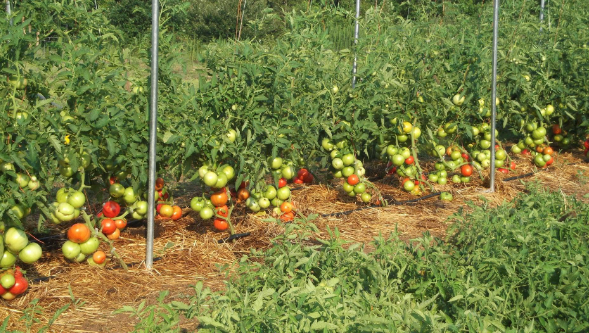Farmers Shy Off Credit due to High Interest Rates, Hustler Fund Shows Steady Rise – CBK

Output price fluctuations, lack of collateral and high interest rates continue to lock most Kenyan farmers from loans, a new survey by the Central Bank of Kenya (CBK) states.
In May, 57 per cent of farmers cited high interest rates compared 35 per cent who complained of similar issue in March.Lack of collateral was a major hindrance in March with 25 per cent of farmers polled blaming it for the lack of access compared 15 per cent in May.According to the survey, banks, SACCOs, and digital loans are still the main sources of finance for farmers but their popularity has been fluctuating.“High interest rates continue to be reported as the most prominent barrier. In some cases, farmers were averse to acquiring any form of credit. They explained that crop growing was a risky activity as it mostly relied on rain which could fail thereby exposing them to a possible auction; a large share of crop growing is rain fed and this has been the case in previous surveys. In the May 2024 survey, about 82 per cent of farmers practised rain-fed agriculture,” CBK notes in the study.
It was also noted that most farmers were reluctant to seek loans because of significant output price fluctuations which makes their incomes unstable even in periods of good harvest. “Some farmers also cited lack of collateral as a deterrent to seeking loans especially in cases where farms were leased.”
The May agriculture Survey by the Central Bank of Kenya (CBK) shows share of farmers going for Hustler Fund, informal savings and credit group for loans on the rise since beginning of the year compared to other alternatives in the market which have been experiencing fluctuation.
According to the survey, banks, SACCOs, and digital loans however are still the main sources of finance for farmers but their popularity keeps on fluctuating between January, March and May.
“More than 25 per cent of the sampled farmers were able to get loans as per the surveys conducted in May, March and January 2024. The main sources of finance for farmers have continued to be banks, SACCOs, and digital loans. The share of farmers who reported to have used the Hustler fund to finance agriculture activity slightly increased in May 2024,” CBK notes in the report.
The May 2024 survey established that, similar to findings of previous surveys, a large share of loans was allocated for buying inputs, followed by labour payments. This result was similar to the observations in the March 2024, January 2024 and November 2023 surveys.
A relatively larger share of farmers reported experiencing higher costs of inputs in both May and March 2024 surveys relative to January 2024, possibly reflecting heightened demand in May and March 2024 as farmers prepared to take advantage of the March-May 2024 long rains season.
On the question about factors critically affecting marketing/sale of farm produce, farmers sampled in the surveys conducted in the January, March and May 2024, and the November and September 2023, generally reported price fluctuations from season to season, price distortion by middlemen, and poor road infrastructure as the main challenges.
Price fluctuations are common because most farmers tend to harvest at the same time thereby flooding markets with farm produce, which tends to drive prices down.
During periods of shortages occasioned by factors such as drought or floods, prices tend to increase. The problem of price fluctuations is particularly severe for tomatoes, maize, beans, green grams, cabbages, and carrots.
“The problem of price distortion by brokers/ middlemen occurs on two fronts. First, the middlemen exert significant influence on buyers who source for fresh produce directly from farmers. Second, the middlemen provide barriers to entry in the physical markets where farm produce is sold by preventing individual farmers from selling their produce directly to customers. Other challenges cited included the long distance from markets, poor road network, limited demand, and competition from imports.”
See Also:
How VunaPay is Revolutionising Small-Scale Agriculture



